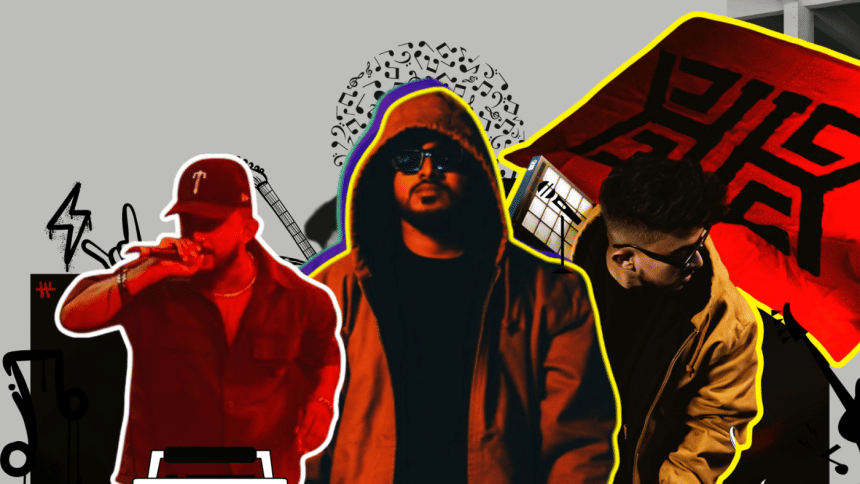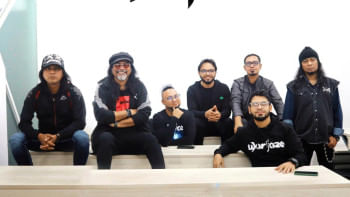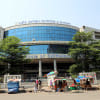Rappers are not being given the respect they deserve: Shezan

Helping ignite a sense of hatred towards the authoritarian regime among youth with his fiery "Kotha Ko", rapper Shezan was one of the most crucial cultural voices in the July Revolution.
A year removed, the rapper has now voiced his frustration in an exclusive interview with The Daily Star, about how hip-hop artistes are being treated in shows organised in the aftermath of the July movement.
Shezan feels that the same community which helped mobilise a generation is being sidelined.
"I've said in the past that no one should contact me about any July-related shows. I meant it," Shezan said when we reached out to him. "We follow street culture in our lyrics. We use local, unfiltered language, slangs, and speak out about what's happening around us. That has always led to a kind of bias. People used to assume that because it's raw, it's not 'worthy'. But after 'Kotha Ko' and 'Awaaz Utha', everyone was listening. Even parents were listening. It changed the way people saw us."

Despite this cultural impact, Shezan maintains that hip hop artistes are looked at with a biased lens. "We didn't do it for recognition. We did it as Bangladeshi musicians, as part of a larger collective resistance. When people say we used this moment to gain something, they miss the point. We stood up when it mattered, and now that the moment has passed, the very artistes who helped amplify the message are being pushed aside."
In his words, it's not about money. "Respect matters way more. We have been given performance slots just to tick a box. Most of the time it feels like we are being added last minute, only because the audience might want to see us. That's not real inclusion. That's tokenism. And that is painful."
He recalled the concert which was held just after August 5, titled "Awaaz Uda - Kotha Ko". Despite being named after their own music, Shezan and Hannan were only able to sing one song each. "We thought we would be given more time. But they blamed time constraints. In one show, I can understand. But when this keeps happening over and over again, it stops being a coincidence. It starts to feel intentional."
According to Shezan, hip hop now has one of the biggest audiences in Bangladesh. "Yet, not a single hip hop-centric concert has happened since the July movement. You could easily build a concert lineup with 20 to 30 hip hop artistes. That would have meant something. That would have motivated everyone. Instead, we're given 10 or 15 minutes, and if we speak up, organisers try to twist our words. They make it sound like we are disrespecting other genres or senior artistes, which is absolutely false. There's no issue between artistes. The problem lies in the management. The discrimination comes from the way the events are run."

 For all latest news, follow The Daily Star's Google News channel.
For all latest news, follow The Daily Star's Google News channel. 









Comments